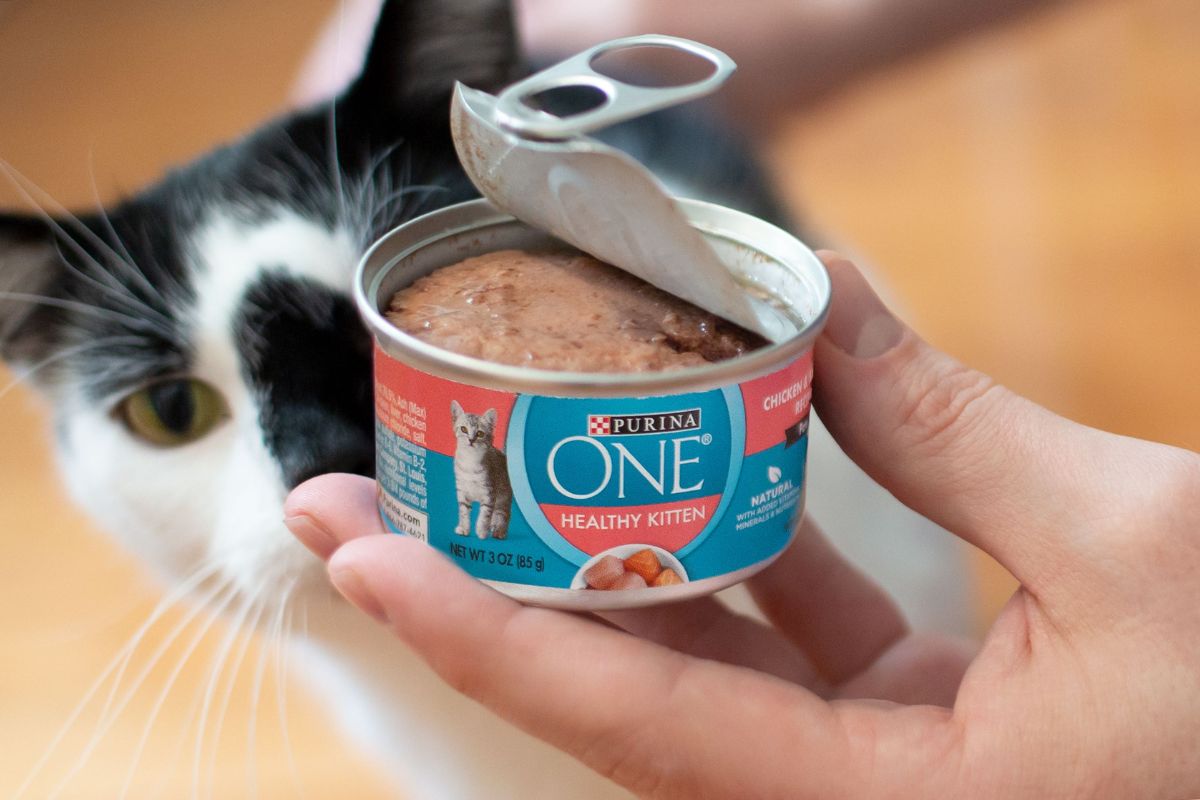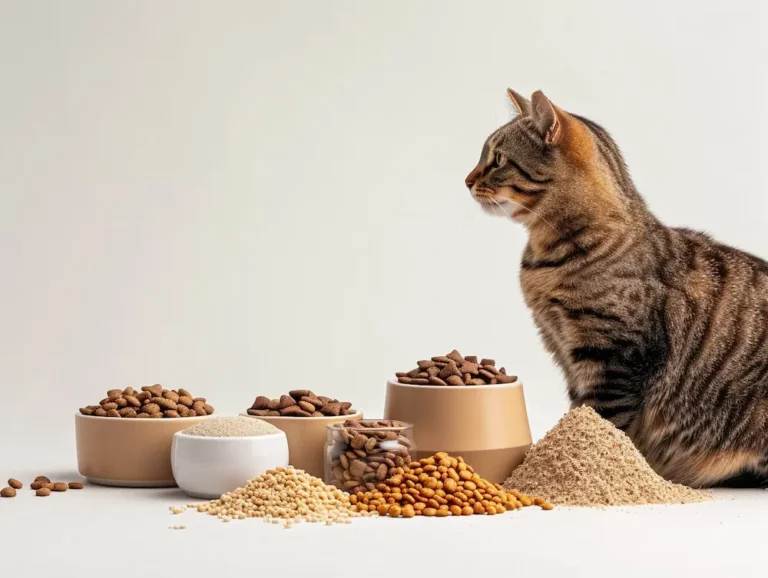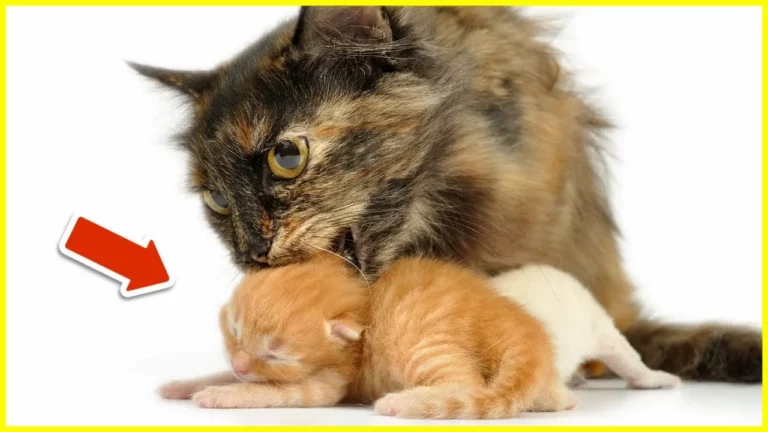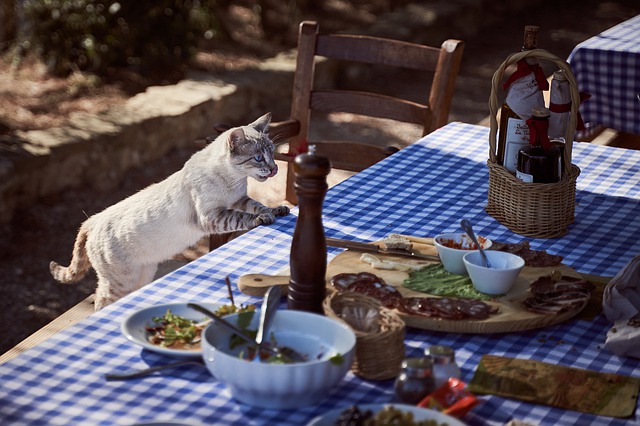Wet Food Options for Cats with Sensitive Stomachs
Understanding your
Selecting appropriate food not only alleviates symptoms but also ensures your feline friend receives balanced nutrition. This article will explore the causes of sensitive stomachs, key nutritional considerations, various wet food options, and tips for transitioning to new diets.
Understanding Sensitive Stomachs
Sensitive stomachs in cats can manifest through various symptoms that indicate digestive distress. Common signs include vomiting, diarrhea, and hairballs, which can cause discomfort for your pet.
Recognizing these symptoms early is essential for effective management. Additionally, understanding the underlying causes of stomach sensitivity—such as food allergies or poorly digestible ingredients—can guide you in selecting the right diet.
Common Symptoms of Sensitive Stomachs
Cats with sensitive stomachs often exhibit symptoms such as vomiting, diarrhea, and hairballs. Vomiting may occur shortly after eating, indicating that the food isn’t settling well.
Diarrhea can lead to dehydration and discomfort, while frequent hairballs suggest that the
Identifying these signs early can help in managing your
Causes of Stomach Sensitivity
Several factors may contribute to a
Other causes include stress, parasites, and even certain medical conditions. For instance, cats may develop sensitivities to ingredients they have consumed for an extended period, leading to gastrointestinal distress.
Understanding these causes is vital for selecting an appropriate diet that minimizes discomfort.
Key Nutritional Considerations
Choosing the right wet food involves understanding key nutritional aspects that support digestive health. Prioritizing highly digestible ingredients and balanced nutrition is essential. Additionally, avoiding irritating ingredients can significantly impact your
Highly Digestible Ingredients
When selecting wet food for cats with sensitive stomachs, it’s crucial to prioritize highly digestible ingredients. Foods rich in easily digestible proteins and carbohydrates can significantly reduce gastrointestinal upset.
Lean proteins like chicken or fish are often recommended, as they provide essential nutrients without overloading the digestive system. Additionally, the inclusion of easily digestible carbohydrates such as rice can further enhance nutrient absorption and support overall digestive health.
Balanced Nutrition
A balanced diet plays a vital role in managing sensitive stomachs. Incorporating fiber and prebiotics can promote healthy digestion by supporting gut flora balance. Fiber helps regulate bowel movements while prebiotics nourish beneficial gut bacteria.
Ensuring that your
Types of Wet Food Options
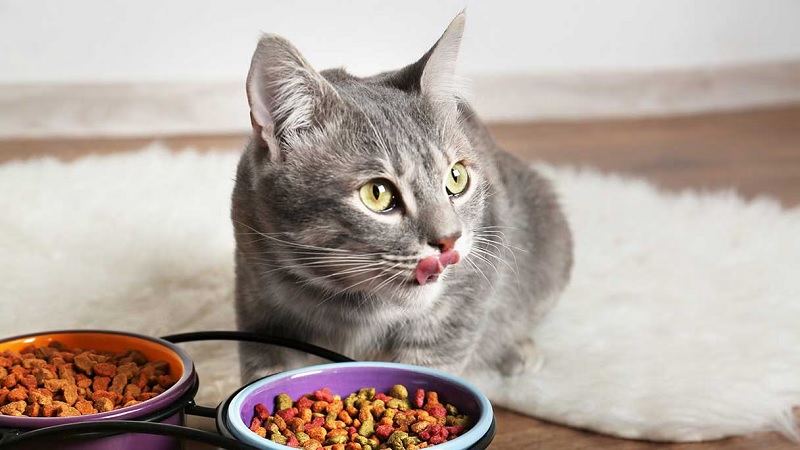
There are several types of wet food options available for cats with sensitive stomachs, including hypoallergenic diets and veterinary prescription foods. Understanding these options will help you make an informed choice that best suits your
Hypoallergenic Diets
Hypoallergenic diets are specifically designed for cats with food sensitivities. These diets often feature limited ingredient options and novel proteins like rabbit or venison, which are less likely to trigger allergic reactions.
Hydrolyzed protein diets are another excellent choice; they break down proteins into smaller components that are less likely to provoke an immune response. Consulting with a veterinarian can help determine if a hypoallergenic diet is suitable for your
Veterinary Prescription Foods
Veterinary prescription foods offer specialized nutrition for cats with sensitive stomachs. These diets are formulated by veterinary nutritionists to address specific health concerns while providing balanced nutrition.
Brands like Royal Canin and Hill’s Science Diet offer prescription wet foods designed specifically for digestive health. These foods often contain high-quality ingredients tailored to minimize gastrointestinal distress while ensuring your
Recommended Wet Food Brands and Products
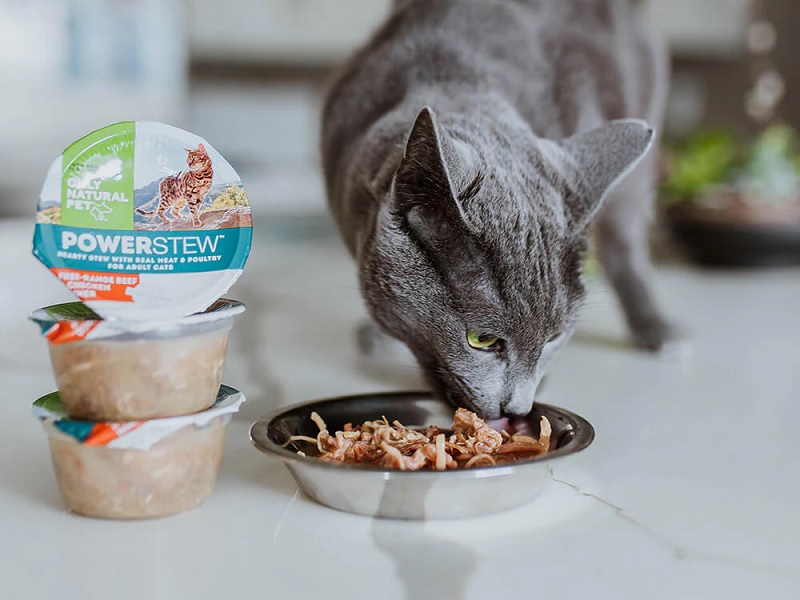
Several reputable brands provide wet food specifically formulated for cats with sensitive stomachs. Understanding their unique features will help you choose the best option for your pet.
Royal Canin
Royal Canin offers a variety of wet food options tailored for cats with sensitive stomachs. Their Digestive Care in Gravy formula features easily digestible ingredients designed to support digestive health while ensuring palatability.
This product contains balanced nutrients that cater specifically to cats prone to gastrointestinal issues.
Hill’s Science Diet
Hill’s Science Diet provides several Digestive Care options, focusing on gentle formulas that are easy on the stomach. Their products often include prebiotic fiber to promote healthy digestion while being rich in essential nutrients.
This brand is well-regarded among veterinarians for its commitment to high-quality ingredients.
Purina Pro Plan
Purina Pro Plan offers a Sensitive Skin & Stomach variety pack, which includes multiple flavors designed for easy digestion. This product highlights nutritional benefits such as omega fatty acids for skin health alongside its focus on minimizing gastrointestinal upset.
The variety ensures that picky eaters have options while still adhering to dietary restrictions.
Transitioning to New Food
Transitioning your
This approach allows your
Additional Tips for Managing Sensitive Stomachs
Adjusting your
People Also Asked
What Are The Best Wet Food Brands For Cats With Sensitive Stomachs?
Some of the top wet food brands for cats with sensitive stomachs include Royal Canin, known for its specialized formulas, and Hill’s Science Diet, which offers gentle digestive care options. Purina Pro Plan also provides a Sensitive Skin & Stomach variety pack that is well-regarded. These brands focus on easily digestible ingredients and balanced nutrition to support your
Can Cats With Sensitive Stomachs Eat Grain-Free Wet Food?
Yes, cats with sensitive stomachs can eat grain-free wet food, as it often contains fewer irritants. However, it’s essential to ensure that the food still provides balanced nutrition and includes high-quality protein sources. Always consult your veterinarian before making dietary changes to ensure the food meets your
How Long Does It Take For A Cat To Adjust To A New Wet Food?
Most cats require a gradual transition period of about 7 to 10 days to adjust to new wet food. Start by mixing small amounts of the new food with the old, gradually increasing the new food while decreasing the old. This slow transition helps prevent digestive upset and allows your
What Are The Symptoms Of Food Allergies In Cats?
Symptoms of food allergies in cats can include vomiting, diarrhea, itchy skin, and ear infections. Some cats may also exhibit behavioral changes or gastrointestinal distress. If you suspect your
Can I Mix Wet And Dry Food For My Cat With A Sensitive Stomach?
Mixing wet and dry food can be done, but it’s essential to monitor your
How Do I Know If My Cat ’s Wet Food Is Causing Digestive Issues?
Signs that your
Is Homemade Wet Food Better For Cats With Sensitive Stomachs?
Homemade wet food can be beneficial for cats with sensitive stomachs if prepared correctly, as it allows you to control ingredients. However, it’s crucial to ensure that the diet is nutritionally balanced. Consulting a veterinarian or a pet nutritionist is recommended before transitioning to homemade meals.
What Is The Best Protein Source For Cats With Digestive Sensitivities?
The best protein sources for cats with digestive sensitivities include lean meats like chicken, turkey, and fish. Novel proteins such as rabbit or venison can also be good options, especially in hypoallergenic diets, as they are less likely to trigger allergic reactions.
How Often Should I Feed My Cat Wet Food If They Have A Sensitive Stomach?
Feeding your
Are Prescription Diets Necessary For All Cats With Sensitive Stomachs?
Prescription diets are not necessary for all cats with sensitive stomachs but can be beneficial in specific cases where dietary management is essential. Consult your veterinarian to determine if a prescription diet is appropriate based on your
Conclusion
Selecting the right wet food is vital for managing a
